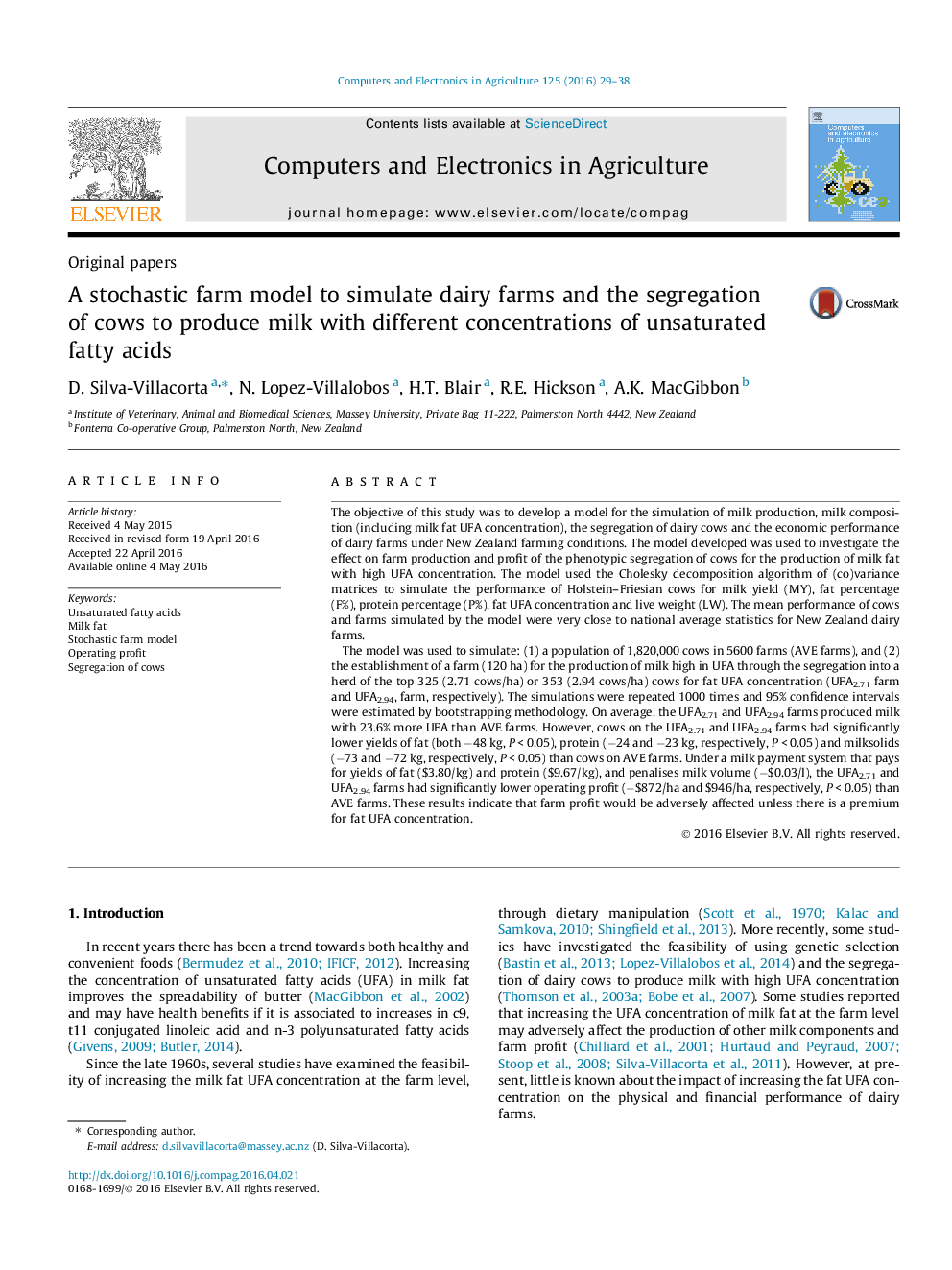| Article ID | Journal | Published Year | Pages | File Type |
|---|---|---|---|---|
| 6540304 | Computers and Electronics in Agriculture | 2016 | 10 Pages |
Abstract
The model was used to simulate: (1) a population of 1,820,000 cows in 5600 farms (AVE farms), and (2) the establishment of a farm (120Â ha) for the production of milk high in UFA through the segregation into a herd of the top 325 (2.71 cows/ha) or 353 (2.94 cows/ha) cows for fat UFA concentration (UFA2.71 farm and UFA2.94, farm, respectively). The simulations were repeated 1000 times and 95% confidence intervals were estimated by bootstrapping methodology. On average, the UFA2.71 and UFA2.94 farms produced milk with 23.6% more UFA than AVE farms. However, cows on the UFA2.71 and UFA2.94 farms had significantly lower yields of fat (both â48Â kg, PÂ <Â 0.05), protein (â24 and â23Â kg, respectively, PÂ <Â 0.05) and milksolids (â73 and â72Â kg, respectively, PÂ <Â 0.05) than cows on AVE farms. Under a milk payment system that pays for yields of fat ($3.80/kg) and protein ($9.67/kg), and penalises milk volume (â$0.03/l), the UFA2.71 and UFA2.94 farms had significantly lower operating profit (â$872/ha and $946/ha, respectively, PÂ <Â 0.05) than AVE farms. These results indicate that farm profit would be adversely affected unless there is a premium for fat UFA concentration.
Related Topics
Physical Sciences and Engineering
Computer Science
Computer Science Applications
Authors
D. Silva-Villacorta, N. Lopez-Villalobos, H.T. Blair, R.E. Hickson, A.K. MacGibbon,
